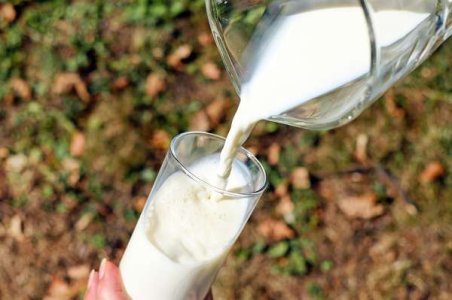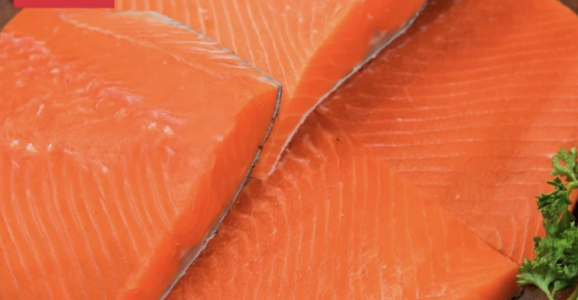Miracle or menace? Discover the daily drink that slashes bowel cancer risk by 17%–and the one that hikes it up!
- Replies 0
Disclaimer: The information provided in this article is for educational purposes only and is not intended as a substitute for professional medical advice, diagnosis, or treatment. Always consult your physician or other qualified healthcare providers with any questions you may have regarding a medical condition or before making any changes to your health regimen.
In the quest for longevity and health, we often find ourselves navigating through a sea of dietary do's and don'ts. For our GrayVine community, staying informed is key to making choices that support a vibrant and healthy life, especially as we age.
Today, we're pouring over some intriguing research that might just have you rethinking your daily beverage routine. What’s your go-to drink? Are you ready to possibly have to change it?
Bowel cancer, also known as colorectal cancer, ranks as the fourth most prevalent cancer in the United States, with a staggering 150,000-plus Americans diagnosed annually.
But what if something as simple as your morning glass of milk could be a shield against this disease?
A study published in the prestigious journal Nature Communications has stirred the pot by examining the dietary habits of over half a million women over nearly 17 years.
The findings? Calcium emerged as a superhero, with evidence suggesting that an additional 300 mg of calcium per day – about the amount in a large glass of milk – could slash bowel cancer risk by a remarkable 17%.

But it's not just milk that's donning the cape. Other calcium-rich champions like leafy greens, yogurt, and even non-dairy milks have shown a protective effect.
This points to calcium itself as the key player. Interestingly, cheese and ice cream didn't make the cut in this study, despite cheese's other health accolades, such as potentially reducing the risk of sleep apnea.
On the flip side, the study poured cold water on the idea that all drinks are benign. It reinforced the sobering truth that alcohol consumption can be a villain in the story of bowel cancer.
Just one large glass of wine per day could hike up your risk by 15%. This is a crucial finding for those who enjoy unwinding with a tipple at the end of the day.
Processed and red meats also found themselves on the chopping block, associated with an increased risk of bowel cancer.
The study's lead researcher, Keren Papier, shared with Cancer Research UK a fascinating mechanism by which calcium might be working its magic. It seems calcium has the potential to bind with bile and free fatty acids in the gut, forming a benign “soap” that prevents these substances from causing harm to the gut lining.
While the spotlight may be on calcium, experts are quick to remind us that a holistic approach is best. A diet rich in fiber from whole grains, fruits, and vegetables, coupled with limited red and processed meat consumption, is recommended.
Lifestyle factors like maintaining a healthy weight, regular exercise, and smoking cessation are also part of the equation.
Lisa Wilde, director of research and external affairs at Bowel Cancer UK, emphasizes that making lifestyle changes can be challenging but believes it's a worthwhile endeavor for the sake of our health.

Have you experienced the benefits of a calcium-rich diet, or have you found creative ways to improve bowel health in your routine? Share your insights, experiences, and queries in the comments below!
In the quest for longevity and health, we often find ourselves navigating through a sea of dietary do's and don'ts. For our GrayVine community, staying informed is key to making choices that support a vibrant and healthy life, especially as we age.
Today, we're pouring over some intriguing research that might just have you rethinking your daily beverage routine. What’s your go-to drink? Are you ready to possibly have to change it?
Bowel cancer, also known as colorectal cancer, ranks as the fourth most prevalent cancer in the United States, with a staggering 150,000-plus Americans diagnosed annually.
But what if something as simple as your morning glass of milk could be a shield against this disease?
A study published in the prestigious journal Nature Communications has stirred the pot by examining the dietary habits of over half a million women over nearly 17 years.
The findings? Calcium emerged as a superhero, with evidence suggesting that an additional 300 mg of calcium per day – about the amount in a large glass of milk – could slash bowel cancer risk by a remarkable 17%.

A study published in Nature Communications detailed the potential effects of dietary factors on bowel cancer risk in over half a million women. Image source: Couleur / Pixabay.
But it's not just milk that's donning the cape. Other calcium-rich champions like leafy greens, yogurt, and even non-dairy milks have shown a protective effect.
This points to calcium itself as the key player. Interestingly, cheese and ice cream didn't make the cut in this study, despite cheese's other health accolades, such as potentially reducing the risk of sleep apnea.
On the flip side, the study poured cold water on the idea that all drinks are benign. It reinforced the sobering truth that alcohol consumption can be a villain in the story of bowel cancer.
Just one large glass of wine per day could hike up your risk by 15%. This is a crucial finding for those who enjoy unwinding with a tipple at the end of the day.
Processed and red meats also found themselves on the chopping block, associated with an increased risk of bowel cancer.
The study's lead researcher, Keren Papier, shared with Cancer Research UK a fascinating mechanism by which calcium might be working its magic. It seems calcium has the potential to bind with bile and free fatty acids in the gut, forming a benign “soap” that prevents these substances from causing harm to the gut lining.
While the spotlight may be on calcium, experts are quick to remind us that a holistic approach is best. A diet rich in fiber from whole grains, fruits, and vegetables, coupled with limited red and processed meat consumption, is recommended.
Lifestyle factors like maintaining a healthy weight, regular exercise, and smoking cessation are also part of the equation.
Lisa Wilde, director of research and external affairs at Bowel Cancer UK, emphasizes that making lifestyle changes can be challenging but believes it's a worthwhile endeavor for the sake of our health.
Key Takeaways
- A study published in Nature Communications detailed the potential effects of dietary factors on bowel cancer risk in over half a million women.
- Drinking a large glass of milk daily, which contains about 300 mg of calcium, may lower the risk of bowel cancer by 17%, whilst a similar quantity of alcohol could increase the risk by 15%.
- Calcium-rich foods other than milk, like leafy greens and yogurt, also appear to have a protective effect against bowel cancer, but cheese and ice cream did not show similar benefits.
- The link between higher risks of bowel cancer with processed and red meat consumption was reinforced, highlighting the importance of overall diet and lifestyle changes for cancer prevention.
Have you experienced the benefits of a calcium-rich diet, or have you found creative ways to improve bowel health in your routine? Share your insights, experiences, and queries in the comments below!
Last edited:






